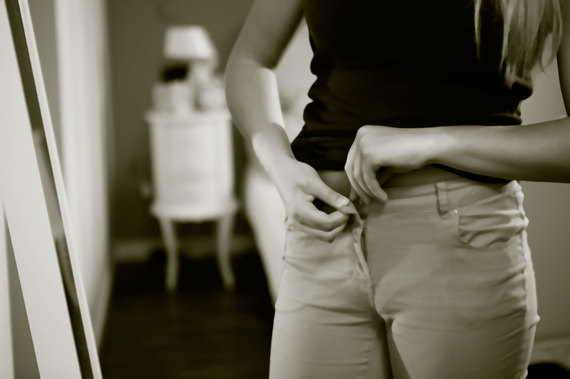It’s pretty well known that exercise can help you drop a few pounds. But did you know that a good night’s sleep will prevent you from gaining weight in the first place?
I can get and stay skinny from sleeping more?
Yep. More and more research is showing how poor sleep can tip the scale — and not in your favor. It’s not just that the extra hours give you more time to head to the fridge. One study found that the sleep deprivation you feel the next day alters the food choices you make.
Groggy bodies and brains prefer high-carb, high-fat, high-calorie foods like pizza and ice cream. Interestingly, while the part of your brain that craves junk food is stimulated by sleep deprivation, the region responsible for helping you make rational decisions appears to be, well, asleep at the wheel. Even though you know on some level that a second, or third, donut may nudge up the number on the scale, you eat it anyway. And that’s after just one night of poor sleep.
Another study looked at what happens after five nights of tossing and turning. The study group consisted of healthy, lean 18-to-35-year-olds. The researchers limited their sleep to five hours a night and gave them unlimited access to food. Guess what happened next?
All participants gained nearly two pounds in those few days.
The researchers believe the increased calorie intake was due to the body’s need for energy (aka, calories) to stay awake. Which makes sense, however the food intake surpassed that need. In fact, the sleep-deprived participants expended five percent more calories while awake, but consumed six percent more calories.
Insufficient sleep also causes your hormones to go haywire. If you don’t get enough shut-eye, the hunger hormone, ghrelin, increases. Meanwhile, leptin — the hormone that signals that you’re full — decreases. Other hormones involved in appetite regulation are affected by sleep deprivation as well.
Obviously, I’m too tired to work out. That can’t be helping, right?
Indeed. How many of us can drag ourselves to work out when we’re exhausted?
But even if you do slog your way through a spin class or lift a few weights, your body won’t burn as much fat compared to someone who’s sufficiently rested. Researchers from Chicago University found that dieters in their study lost the same amount of weight as when they slept less, but when well rested, they lost more fat. More than half of the weight they lost was fat, compared to only one-quarter when they were sleep deprived.
Finally, the old adage “when you snooze, you lose” is a good thing.
